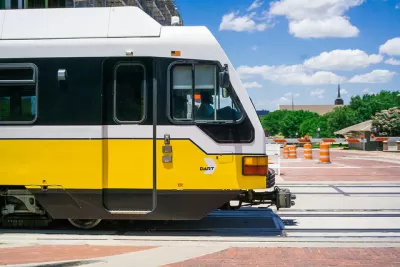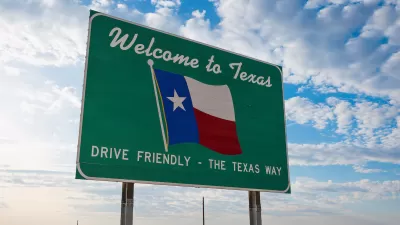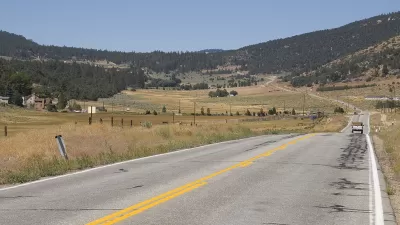APTA's new report suggests that the need for investment is great, but the benefits could be even greater.

A federal infrastructure bill should include at least $232 billion over the next 10 years for critical public transportation projects around the country, the American Public Transportation Association (APTA) says in a new report. That investment would yield $928 billion in economic activity over the next 20 years, the report says.
To tally the needed investment, APTA surveyed member agencies for their priority projects at the local and regional levels. That deficit came to $91 billion, on top of a $89.9 billion backlog for state of good repair programs and $51.2 billion still in the pipeline from the FTA's Capital Investment Grant Program.
In addition to maintenance and repair, transit agencies told APTA they could use funding to modernize their systems through electrification; automated shuttle pilots; and integration with TNCs and other new mobility options.
The report also notes that around 70 percent of Americans support increasing federal funding for public transportation.
FULL STORY: Public transit infrastructure needs at least $232 billion, APTA says

Planetizen Federal Action Tracker
A weekly monitor of how Trump’s orders and actions are impacting planners and planning in America.

Map: Where Senate Republicans Want to Sell Your Public Lands
For public land advocates, the Senate Republicans’ proposal to sell millions of acres of public land in the West is “the biggest fight of their careers.”

Restaurant Patios Were a Pandemic Win — Why Were They so Hard to Keep?
Social distancing requirements and changes in travel patterns prompted cities to pilot new uses for street and sidewalk space. Then it got complicated.

Platform Pilsner: Vancouver Transit Agency Releases... a Beer?
TransLink will receive a portion of every sale of the four-pack.

Toronto Weighs Cheaper Transit, Parking Hikes for Major Events
Special event rates would take effect during large festivals, sports games and concerts to ‘discourage driving, manage congestion and free up space for transit.”

Berlin to Consider Car-Free Zone Larger Than Manhattan
The area bound by the 22-mile Ringbahn would still allow 12 uses of a private automobile per year per person, and several other exemptions.
Urban Design for Planners 1: Software Tools
This six-course series explores essential urban design concepts using open source software and equips planners with the tools they need to participate fully in the urban design process.
Planning for Universal Design
Learn the tools for implementing Universal Design in planning regulations.
Heyer Gruel & Associates PA
JM Goldson LLC
Custer County Colorado
City of Camden Redevelopment Agency
City of Astoria
Transportation Research & Education Center (TREC) at Portland State University
Camden Redevelopment Agency
City of Claremont
Municipality of Princeton (NJ)





























